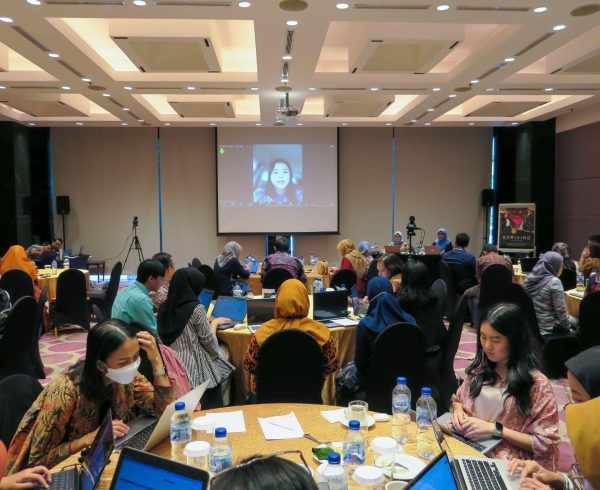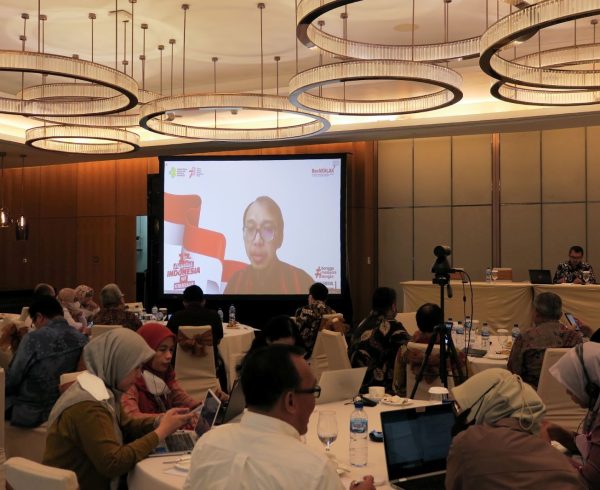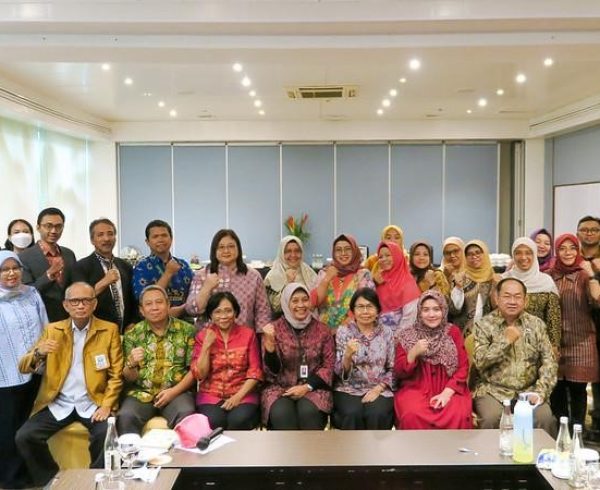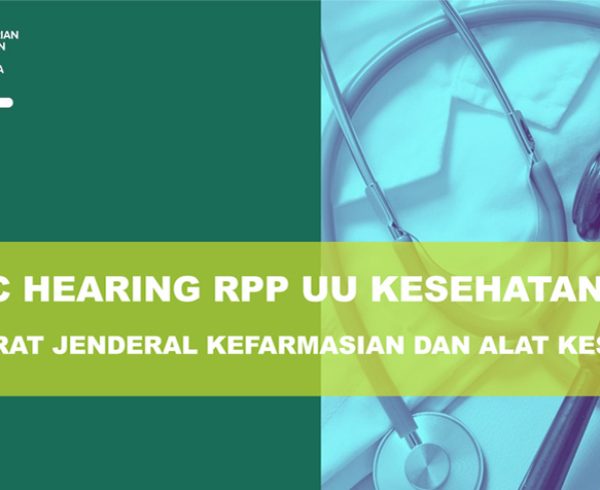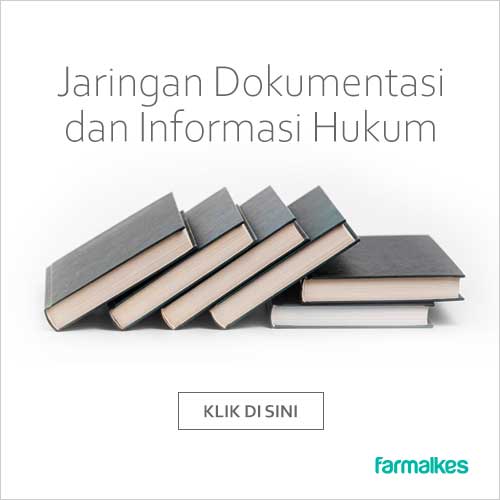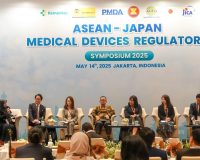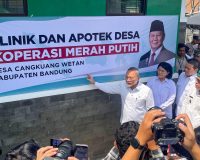Jakarta, 22 September 2023.
Hari ke-4 sesi II penyelenggaraan Public Hearing Rancangan Peraturan Turunan UU Kesehatan No. 17 tahun 2023 Direktorat Jenderal Kefarmasian dan Alat Kesehatan membahas topik mengenai Pelayanan Darah.
Kegiatan ini mengundang pemangku kepentingan dari berbagai sektor, antara lain BPOM, Kementerian/Lembaga, Direktorat Jenderal Bea dan Cukai, PMI, UPD RS di Jakarta, Asosiasi dan Organisasi Profesi, Komunitas dan Perhimpunan Donor Darah, Dinas Kesehatan, BUMN Farmasi, Fasilitas Fraksionasi Plasma dan Praktisi Ahli.
Direktur Jenderal Kefarmasian dan Alat Kesehatan, L. Rizka Andalusia pada pembukaan menyampaikan bahwa pada substansi pelayanan darah ada sesuatu yang baru selain pelayanan darah rutin yang diselenggarakan Unit Pengelola darah (UPD) tapi juga terkait pemanfaatan plasma sebagai produk obat derivat plasma.

“Kami mengundang stakeholder terkait sebagai perwakilan kelompok masyarakat untuk memberikan masukan secara lisan atau tertulis agar memperkaya atau melengkapi RPP yang sudah kami susun”, ujar Rizka.
Public Hearing sesi Pelayanan Darah ini dihadiri oleh Direktur Pelayanan Kesehatan Rujukan, Yuli Astuti Saripawan yang juga ikut mengawal substansi Pelayanan Darah pada UU Kesehatan. Melalui paparannya disampaikan bahwa pelayanan darah merupakan upaya kesehatan yang memanfaatkan darah manusia sebagai bahan dasar dengan tujuan kemanusiaan, penyembuhan penyakit dan pemulihan kesehatan, serta tidak untuk tujuan komersial. Pelayanan darah terdiri dari pengelolaan darah dan pelayanan transfusi darah.
“Pengelolaan darah meliputi 8 (delapan) bagian yakni perencanaan, pengerahan dan pelestarian donor darah, penyeleksian donor darah, pengambilan darah, pengujian darah, pengolahan darah, penyimpanan darah dan pendistribusian darah. Sedangkan pelayanan transfusi darah meliputi 5 (lima) bagian yakni perencanaan, penyimpanan, pengujian pra-transfusi, pendistribusian dan tindakan medis pemberian darah kepada pasien”, papar Direktur Sari.
Tanggung jawab pemerintah dalam pelayanan darah antara lain (1) Pemerintah Pusat dan Pemerintah Daerah menjamin pembiayaan dalam penyelenggaraan pelayanan darah serta bertanggung jawab atas penyelenggaraan pelayanan darah yang aman, mudah diakses, dan sesuai dengan kebutuhan masyarakat; (2) Pemerintah Pusat menetapkan biaya pengganti pengolahan darah serta bertanggung jawab dalam penyusunan standar pelayanan darah; dan (3) Pemerintah Daerah bertanggung jawab terhadap pelayanan darah di wilayahnya.
Direktur Ketahanan Kefarmasian dan Alat Kesehatan, Roy Himawan melalui paparannya menyampaikan bahwa plasma dapat dimanfaatkan untuk tujuan penyembuhan penyakit dan pemulihan kesehatan melalui pengolahan dan produksi menjadi produk obat derivat plasma.
“Pengelolaan plasma mempunyai beberapa tahapan antara lain perencanaan, pengerahan dan pelestarian donor plasma, penyeleksian donor plasma, pengambilan plasma, pengujian plasma, penyimpanan plasma, pendistribusian plasma”, papar Himawan.
Lebih lanjut Himawan menyampaikan Produk Obat Derivat Plasma (PODP) diperoleh melalui proses Fraksionasi Plasma (pemilahan plasma menjadi fraksi protein individual untuk menghasilkan PODP) dengan menerapkan teknologi pengolahan plasma. Plasma yang digunakan harus memenuhi standar Cara Pembuatan Obat yang Baik (CPOB). Selain itu, PODP harus memenuhi standar keamanan, khasiat, dan mutu serta memperoleh izin edar.

“Fraksionasi plasma dilakukan di fasilitas fraksionasi plasma dalam negeri dengan ketentuan antara lain (1) Badan usaha berbadan hukum, ditetapkan oleh Menteri, dan mendapat sertifikat CPOB; (2) Dapat menyelenggarakan fraksionasi plasma secara kontrak kepada fasilitas fraksionasi plasma luar negeri dengan jangka waktu paling lama 3 (tiga) tahun dalam rangka menyediakan fasilitas fraksionasi plasma dalam negeri tersertifikasi CPOB; dan (3) Dalam penyelenggaraan fraksionasi plasma secara kontrak, pengiriman plasma ke luar negeri harus disertai dengan perjanjian pemindahan dan penggunaan plasma yang disetujui oleh Pemerintah”, lanjut Himawan.
Pencatatan dan pelaporan pengumpulan plasma dan fraksionasi plasma dapat memanfaatkan sistem informasi kesehatan yang terintegrasi dengan Sistem Informasi Kesehatan Nasional.
Pada RPP juga disebutkan bahwa Pemerintah Pusat bertanggung jawab atas ketersediaan plasma dan PODP yang aman, berkhasiat, bermutu dan terjangkau sesuai kebutuhan pelayanan kesehatan serta mengendalikan biaya pengolahan plasma dan PODP.
Sebagai penutup Dirjen Kefarmasian dan Alkes, L. Rizka Andalusia menyampaikan bahwa pemerintah akan mengendalikan pengelolaan dan distribusi sehingga manfaatnya akan kembali ke masyarakat. Perencanaan pengelolaan plasma melibatkan Bank Plasma, UPD dan Fasilitas Fraksionasi Plasma dengan memperhatikan kebutuhan jumlah darah dan jumlah UPD. Selain itu perencanaan pengelolaan plasma mengacu pada Rencana Induk Bidang Kesehatan (RIBK) serta menggunakan sistem informasi kesehatan yang terintegrasi dengan Sistem Informasi Kesehatan Nasional (SIKN).
“Hal ini dilakukan supaya pengelolaan plasma bisa berjalan serta ketahanan dan kemandirian di bidang PODP dapat terlaksana dan bermanfaat bagi masyarakat, karena sampai saat ini kita masih mengimpor seluruh PODP,” tutup Rizka. Kemenkes akan terus menghimpun masukan dan aspirasi dari masyarakat seluas-luasnya. Masyarakat umum dapat mengikuti kegiatan ini melalui youtube Kementerian Kesehatan RI dan dapat berpartisipasi aktif dengan memberikan masukan maupun usulan melalui laman website https://partisipasisehat.kemkes.go.id/ selama proses penyusunan RPP berlangsung



